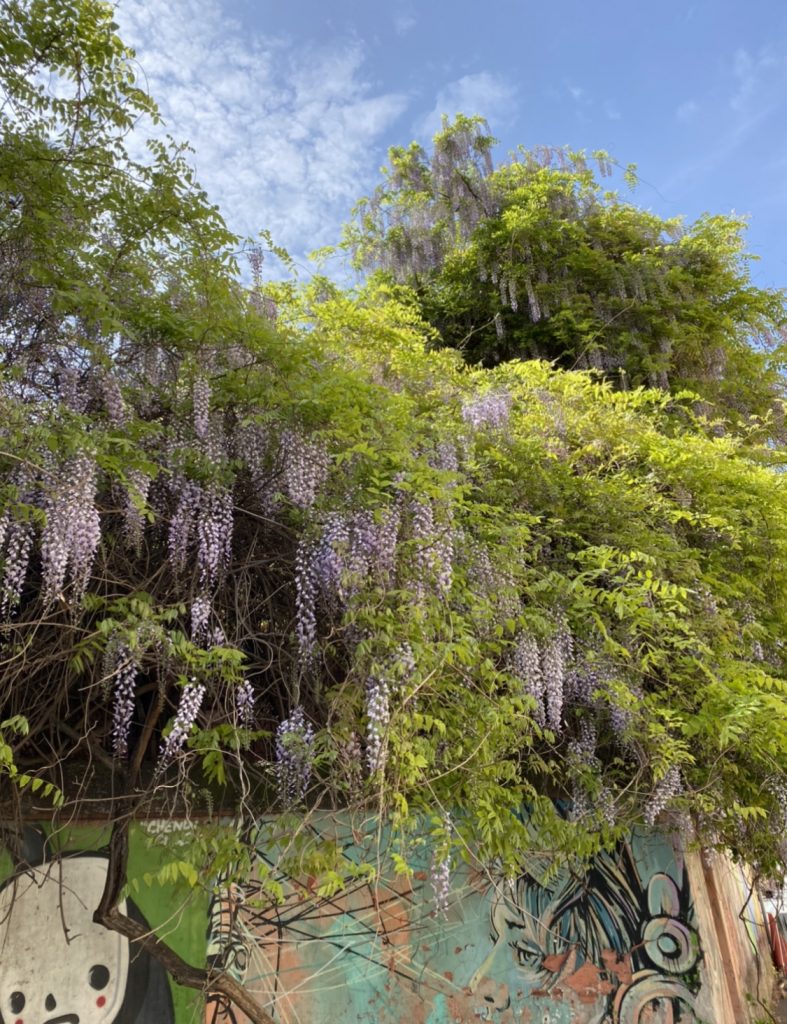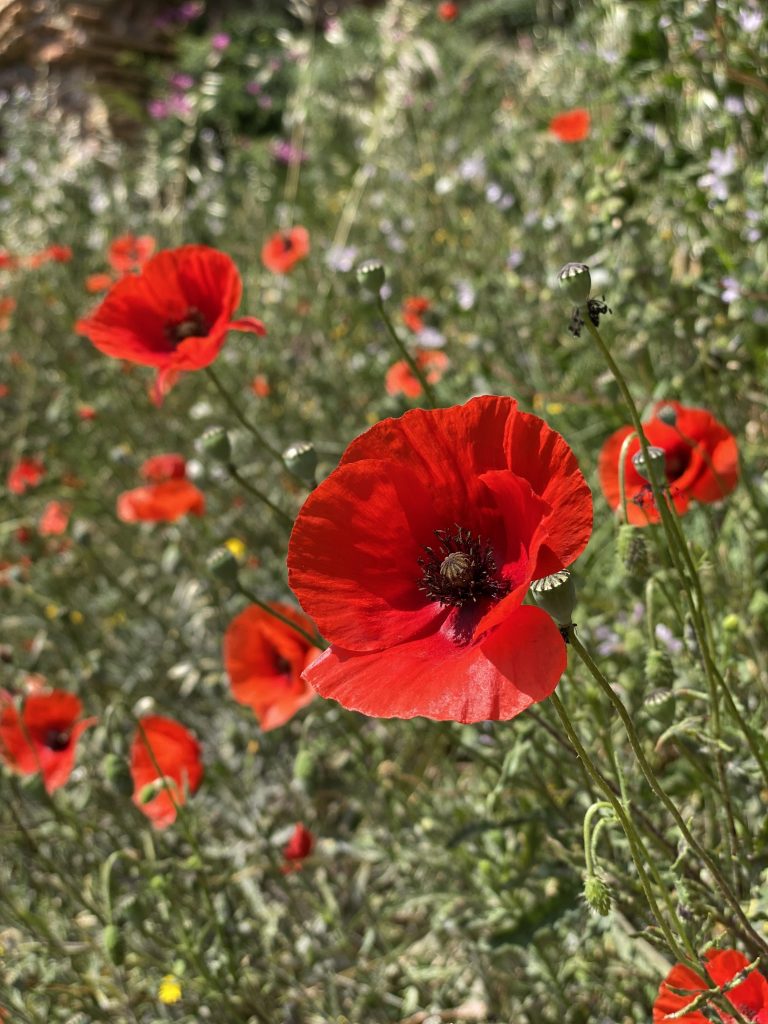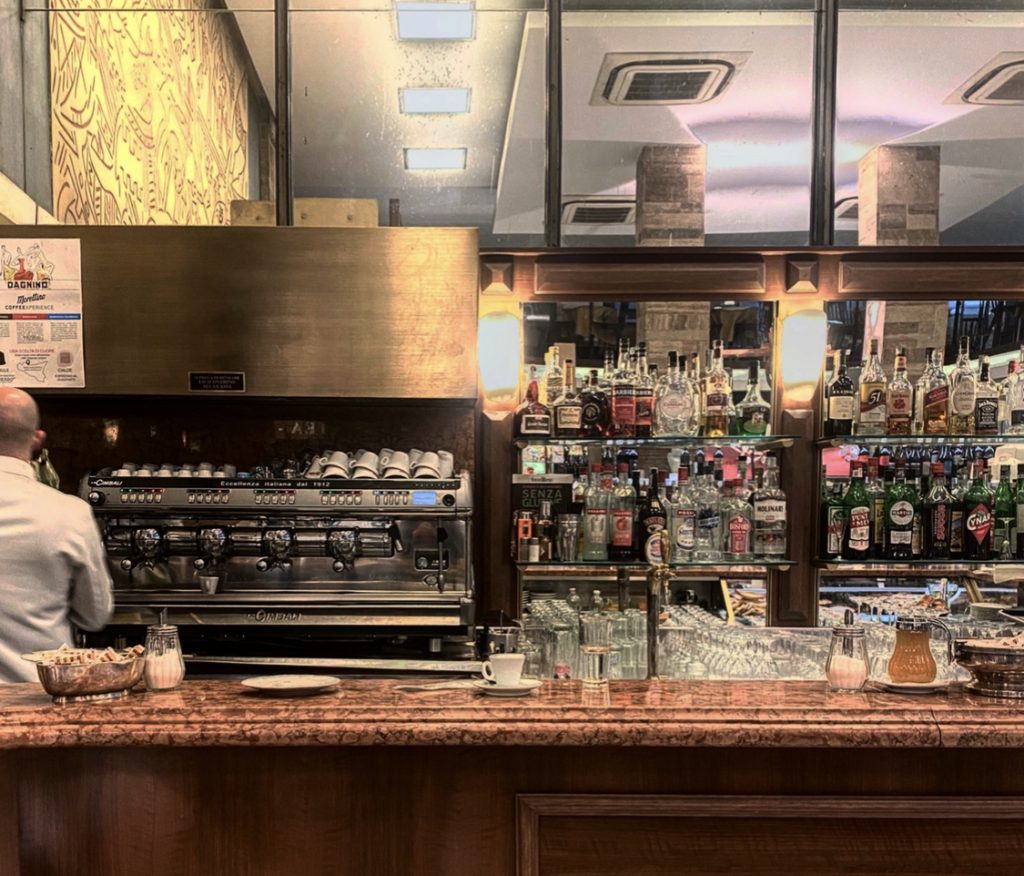Today marks our official quarantena, the word we get from the forty days the Venetian Republic kept ships suspect of disease at bay. I went for a (permitted, local) walk, the first in a week. I wandered along a little bit of the timeless aqueduct road, past the magical hidden olive grove mentioned in Day 23 of the Roman Quarantine. I saw poppies and wisteria and prickly pears, all slightly more bounteous than last week.

Along the deserted streets of this perpetual August Sunday in April, I passed a closed coffee bar and thought of the glorious joy of a coffee taken at at the counter of an Italian bar. Pretty much everyone I know in Italy is yearning more than anything for a coffee at the bar.

It is the most satisfying of simple pleasures, takes no more than five minutes in total, and costs €1. Italians are very good at disciplined small pleasures (and drink far less coffee than people imagine). They are the masters of a single tiny flute of Prosecco, a small Campari Soda served with ceremony, the sliver of pizza rossa hot from the bakery.
But of all of these, perhaps the caffé al banco (coffee at the counter) is the finest, the most perfect of tiny pleasures, and I’ve never seen it transferred anywhere else. The coffee thing has, but (and here I’ll let you into a secret) lots of the coffee served in Roman bars is fine, but not amazing. Some of it is actively bad. In the average neighbourhood bar you certainly won’t find single-estate hipster coffee pre-digested by marmosets; the baristas do their job with panache and charm, but not self-consciously. It’s never fancy. Pick a random Roman on the street (when random Romans are once again on the street) and ask what coffee they like and they’ll probably say Illy, which you can find in any supermarket the world over.
Go to a third wave coffee bar in Shoreditch and you will be ushered to sit on mis-matched furniture to savour your coffee. These are super places too, but they are quite a different beast to the Italian bar.

The ritual of a caffè al banco isn’t a long one; it’s a tiny shot of social interaction. An egalitarian ritual, the place where people of all ages and all walks of life for a moment all do exactly the same thing. In a local bar the staff are always the same, from one decade to the next. When entering a smallish bar (as in shops, dentists’ waiting rooms, and lifts in Italy) it is not unusual to say “Buongiorno” to no one in particular (and to everyone). An acknowledgement of your existence and theirs, with no expectation of any further conversation. I find it a wonderfully well-mannered, confident habit.
You certainly say it to the barista before asking for your coffee (to bark an order with no greeting is seen, rightly, as very shoddy indeed). He (or, less often, she) will set up your coffee dish and spoon in front of you on the counter. The coffee will be set down, the thick ceramic dispersing the heat perfectly so it can be drunk right away (absurdly hot coffee, along with carpet in bathrooms, is every Italian’s bête noir). You’ll pay at the till (busy tourist bars insist people pay up front, Romans rarely do), utter a general “grazie, arrivederci” to whoever might be interested as you make to leave, and an echoed reply will arrive at your back as you head outside.
The whole thing is an infinitely satisfying and wonderfully human micro-social interaction, a boost of caffeine, and a lingering taste of coffee (which in my opinion, and I’m no expert, even when not great is still delicious). All for a euro. No wonder we all miss it.


This brings back such wonderful memories of the simple pleasure of buying a coffee in Italy and especially in Rome. There is a bar in Trastevere where, when I returned the next day both the person manning the till and the barista remembered what I had the previous day! No need to.present my receipt. Such care and attention makes that coffee really special.
All the best to you and your family from us in Australia. I hope the situation resolves itself for beautiful Italy and indeed the rest of the world very soon.
Thank you! The very best to you and yours, Agnes